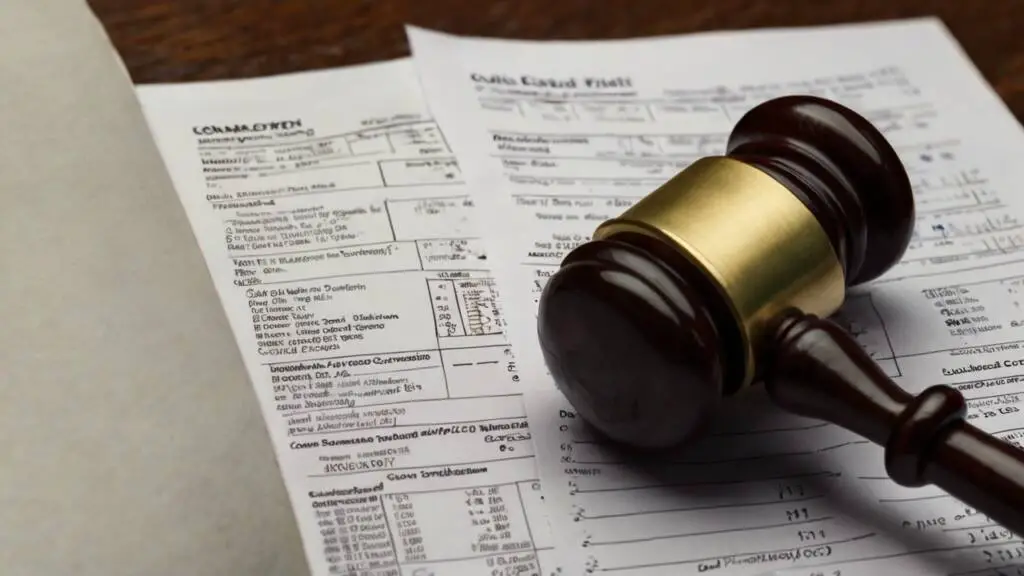Top 5 Debt Consolidation Options

Managing multiple debts can be an overwhelming and stressful experience. The constant juggling of bills, due dates, and interest rates can make anyone feel like they’re drowning in financial obligations. However, there is hope. Debt consolidation offers a way to simplify your payments and potentially reduce the interest rates you’re paying. This blog post will explore the top 5 debt consolidation options available, helping you find a strategy that fits your financial situation and goals.
Main Points
1. Personal Loans
A personal loan is a type of unsecured loan that can be used for various purposes, including debt consolidation. When you take out a personal loan, you receive a lump sum of money that you can use to pay off your existing debts. Here’s what you need to know about using personal loans for debt consolidation:
Pros:
Fixed interest rates: With a personal loan, you’ll typically get a fixed interest rate, which means your monthly payments will remain predictable throughout the life of the loan.
Predictable monthly payments: Fixed interest rates lead to consistent monthly payments, making it easier to budget your finances.
Cons:
Requires good credit score for best rates: To qualify for the best interest rates, you’ll generally need a good to excellent credit score.
Potential origination fees: Some lenders charge origination fees, which can add to the cost of the loan.
2. Balance Transfer Credit Cards
Balance transfer credit cards allow you to transfer the balances from your existing credit cards to a new card, often with a low or 0% introductory APR offer. This can be an effective way to consolidate credit card debt if you can pay off the balance before the introductory period ends. Here’s what you should consider:
Pros:
Low or 0% introductory APR offers: These offers can help you save on interest if you can pay off the balance within the introductory period.
Cons:
High-interest rates after the introductory period: If you don’t pay off the balance before the introductory period ends, you could be hit with high interest rates.
Balance transfer fees: Many balance transfer credit cards charge a fee for transferring balances, typically a percentage of the amount transferred.
3. Home Equity Loans or HELOCs (Home Equity Line of Credit)

Home equity loans and HELOCs allow you to borrow against the equity you’ve built up in your home. These options can be attractive due to their lower interest rates compared to personal loans or credit cards. However, there are significant risks involved:
Pros:
Lower interest rates: Home equity loans and HELOCs often have lower interest rates compared to other types of loans.
Cons:
Risk of losing your home: If you default on your payments, you could risk losing your home, as it serves as collateral for the loan.
4. Debt Management Plans (DMPs)
Debt Management Plans (DMPs) are offered by non-profit credit counseling agencies to help you manage your debt. Under a DMP, a counselor will work with your creditors to negotiate lower monthly payments and interest rates. Here’s what to consider:
Pros:
Lower monthly payments: Credit counselors can negotiate lower monthly payments, making it easier to manage your finances.
One monthly payment: A DMP consolidates your debts into a single monthly payment, simplifying your budgeting process.
Cons:
May affect your credit score: Enrolling in a DMP can temporarily affect your credit score, but making consistent payments can help improve it over time.
5. Peer-to-Peer Lending (P2P)
Peer-to-Peer (P2P) lending platforms connect borrowers with individual investors willing to fund their loans. P2P loans can be used for debt consolidation and offer competitive interest rates, particularly for those with good credit scores. Here’s what to know:
Pros:
Competitive interest rates: P2P loans often offer competitive interest rates, which can be lower than traditional personal loans.
Cons:
The application process may take longer: The application and approval process for P2P loans can be longer than that of traditional loans.
Conclusion
Debt consolidation can be a powerful tool to help you regain control of your finances. By consolidating your debts, you can simplify your payments, potentially reduce your interest rates, and create a more manageable repayment plan. As you evaluate your financial situation, consider the options outlined in this blog post and choose the one that best fits your needs. Remember, taking control of your finances is a journey, and every step you take brings you closer to financial freedom. Start today and take charge of your financial future!
https://7thavewellnessblog.com/?p=3729
https://www.nerdwallet.com/?trk=nw_gn_6.0
FAQs
Q: What is debt consolidation and how does it work?
A: Debt consolidation is a financial strategy that involves combining multiple debts into a single loan, making it easier to manage and pay off. This typically involves getting a debt consolidation loan that pays off existing debts, allowing you to focus on a single monthly payment instead of multiple payments.
Q: What are the benefits of debt consolidation?
A: The benefits of debt consolidation include lower monthly payments, reduced interest rates, and the convenience of having just one payment to manage. It can also help you pay off your debt faster and improve your credit score over time if managed correctly.
Q: Can I qualify for a debt consolidation loan with bad credit?
A: Yes, it is possible to qualify for a debt consolidation loan with bad credit, but options may be limited. You may face higher interest rates or need to provide collateral. Consider working with a credit union or exploring alternatives to debt consolidation loans that may be available.
Q: What types of debt can I consolidate?
A: You can consolidate various types of debt, including credit card debt, auto loans, and student loans. The key is to consolidate high-interest debt into a new loan with a lower interest rate to maximize your savings.
Q: How do I get a debt consolidation loan?
A: To get a debt consolidation loan, start by researching different loan options and lenders. You can apply for a debt consolidation loan online or at a local bank or credit union. Make sure to compare rates, terms, and fees before making a decision.





